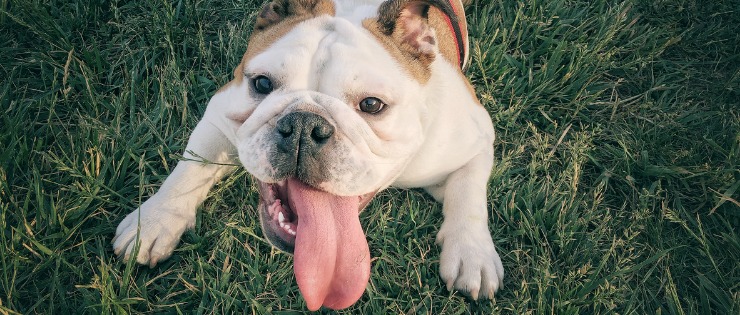
One thing I really love about dogs is the diverse array of shapes and sizes they come in! So many distinctly beautiful breeds, so many unique characteristics. Each dog is beautiful in its own right!
Some of the most beloved dogs in the world are the flat-faced breeds - they’re full of character and so unique in their look. But did you know their super cute smooshed faces come with a set of breathing challenges? Central to these is Brachycephalic Syndrome, a condition I really want to give you a basic understanding of today.
As dog owners it's up to us to educate ourselves and learn about any condition that could afflict our pooches. That's how we can give them the best care and quality of life possible! So here goes… Brachycephalic Syndrome.
What is Brachycephalic Syndrome?
Brachycephalic Syndrome refers to a collection of upper respiratory issues faced by dogs with shortened skulls or snouts. The term itself comes from the Greek "brachy" meaning short and "cephalic," which pertains to the head. The issues arise from the combination of anatomical abnormalities, which include but aren’t limited to:
Elongated Soft Palate: the tissue at the roof of the mouth is too long and blocks the airways, hampering the flow of air into the lungs.
Stenotic Nares: these are narrow nostrils that make it difficult to breathe.
Everted Laryngeal Saccules: Laryngeal saccules are soft sacks near the larynx of the dog. When everted, they turn outwards and get sucked into the airways and obstruct the flow of air.
Symptoms to Look Out For
Different dogs will have different symptoms according to the type and seriousness of abnormalities affecting their airways. But generally if you have a short-nosed pooch, these are some of the symptoms you should be looking out for:
- Noisy breathing or difficulty breathing: Especially noticeable when your dog is excited or after exercise.
- Cyanosis: This is a blue discoloration of the skin or gums due to poor oxygenation.
- Exercise intolerance: Your dog will get tired easily or be very unwilling to engage in physical activity.
- Heat intolerance: Because breathing is harder for them, Brachycephalic dogs are more susceptible to heatstroke.
- Gagging or regurgitating: This is often from the elongated soft palate getting in the way of the airway.
- Sleeping issues and snoring: You’ll notice your dog snoring, or even sleeping with a toy in its mouth to compensate for the blocked airways.
What Causes Brachycephalic Syndrome?
Brachycephalic Syndrome is a genetic condition, affecting the flat-nosed breeds of dogs like Bulldogs, Boxers, Pugs and Chow Chows. It’s sad that the syndrome is so closely linked to the physical trait that is one of the reasons these breeds are so loved and distinct! What’s even sadder is that over time humans have purposefully bred these kinds of dogs to have shorter skulls for the ‘look’ it gives. Now their upper respiratory anatomy is simply too crowded, and Brachycephalic Syndrome is the result.
It’s also important to note that not all flat-faced dogs will have this syndrome - they’re simply more prone to it because of their genetic and physical structure.
How Brachycephalic Syndrome is Diagnosed
Diagnosis needs to be done by a professional, so if you suspect your dog’s breathing difficulties are to do with this please take them down to your local vet. They’ll come to a conclusion based on one or all of the following checks:
- Physical Examination: This will normally be the first step in the diagnosis, and includes listening to the dogs breathing and checking their nostrils to see if they have stenotic nares.
- Oral Examination: If an elongated soft palate is suspected, your pooch might need to be sedated for an oral examination.
- CT Scan or X-Rays: X-rays can be useful to evaluate the lower airways and lungs, while a CT scan can check for elongated soft palate or everted laryngeal saccules.
How Brachycephalic Syndrome is Treated
Treatments depend on the severity of the case. Mild cases can be managed with lifestyle adjustments, such as managing weight, trying to prevent overheating and limiting exercise. In more serious cases, your doggo might need a surgical intervention. This can involve shortening the elongated soft palate, or surgically removing the everted laryngeal saccules.
Your vet will definitely give you a solid idea of exactly what's required and how you can help your dog lead a much more comfortable life. So don’t delay in getting your furry friend in for a checkup if they’re showing signs of breathing discomfort! And if you’re looking for a new puppy to join your family, my advice is to avoid brachycephalic breeds.